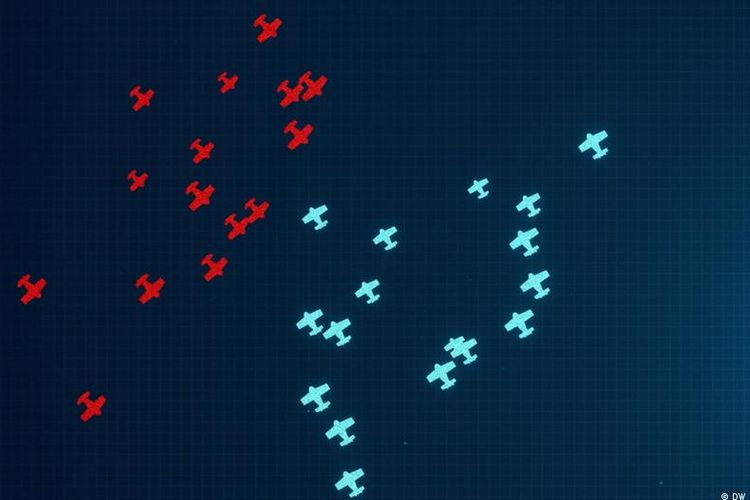
Also read: Gas Explosion Injuries Two Foreigners in Bali, Indonesia
Research by the Center for Strategic and International Studies showed that Azerbaijan had a massive edge in loitering munitions, with more than 200 units of four sophisticated Israeli designs. Armenia had a single domestic model at its disposal.
Other militaries took note.
"Since the conflict, you could definitely see a certain uptick in interest in loitering munitions," said Franke. "We have seen more armed forces around the world acquiring or wanting to acquire these loitering munitions."
Drone swarms and 'flash wars'
This is just the beginning. Looking ahead, AI-driven technologies such as swarming will come into military use — enabling many drones to operate together as a lethal whole.
"You could take out an air defense system, for example," said Martijn Rasser of the Center for a New American Security, a think tank based in Washington, D.C.
"You throw so much mass at it and so many numbers that the system is overwhelmed. This, of course, has a lot of tactical benefits on a battlefield," he told DW. "No surprise, a lot of countries are very interested in pursuing these types of capabilities."
The scale and speed of swarming open up the prospect of military clashes so rapid and complex that humans cannot follow them, further fueling an arms race dynamic.
As Ulrike Franke explained: "Some actors may be forced to adopt a certain level of autonomy, at least defensively, because human beings would not be able to deal with autonomous attacks as fast."
This critical factor of speed could even lead to wars that erupt out of nowhere, with autonomous systems reacting to each other in a spiral of escalation. "In the literature we call these 'flash wars'," Franke said, "an accidental military conflict that you didn't want."
 Experts warn that AI-driven systems could lead to 'flash wars' erupting beyond human control
Experts warn that AI-driven systems could lead to 'flash wars' erupting beyond human controlA move to 'stop killer robots'
Bonnie Docherty has made it her mission to prevent such a future. A Harvard Law School lecturer, she is an architect of the Campaign to Stop Killer Robots, an alliance of nongovernmental organizations demanding a global treaty to ban lethal autonomous weapons.
"The overarching obligation of the treaty should be to maintain meaningful human control over the use of force," Docherty told DW.
"It should be a treaty that governs all weapons operating with autonomy that choose targets and fire on them based on sensor's inputs rather than human inputs."
Also read: Indonesia Police Bust Reveals Use of Drones in Drug Smuggling Attempt
The campaign has been focused on talks in Geneva under the umbrella of the UN Convention on Certain Conventional Weapons, which seeks to control weapons deemed to cause unjustifiable suffering.
It has been slow going. The process has yielded a set of "guiding principles," including that autonomous weapons be subject to human rights law, and that humans have ultimate responsibility for their use. But these simply form a basis for more discussions.




































